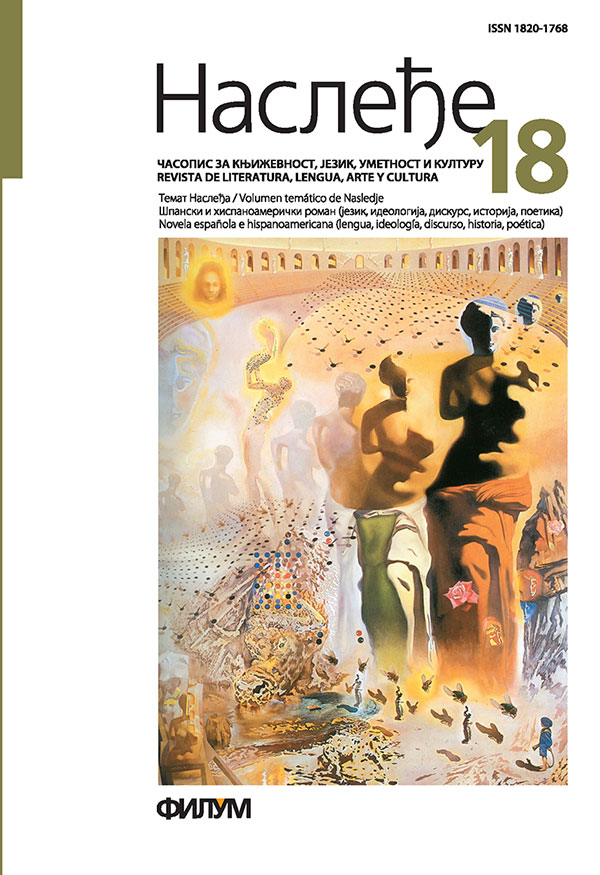THE COMBATIVE DISCOURSE IN SOLITARIO DE AMOR BY CRISTINA PERI ROSSI
Keywords:
gender theory, woman body, maternity, postmodernism, languageAbstract
Solitario de amor (1998) is a first-person speech of a male subject in love with a mysterious woman named Aida. The text is a kind of confession where disorderly and capricious way the anonymous male voice, communicate their discomfort, frustration, desire, love and obsession with a woman indifferent to him. This verbiage sets the main text barely altered by the participation of Aida, who seems to contradict the wishes or views of his mistress. Aida's speech on the other hand, tends to self-sufficiency making it significantly opposite to the main voice. Through textual analysis of two essentially antagonistic stories -femenino/masculino- we will try to trace the ideological coordinates of this passionate love story, narrated by Peri Rossi in a vigorous and beautiful prose.
References
Giménez 2008: T. Giménez, Solitario de amor y el tercer género: Ciberletras http://www.lehman.cuny.edu/ciberletras/v19/gimenezt.html
Godoy 2005: C. G. Godoy, Acerca de la subjetividad femenina del discurso amoroso, en Solitario de amor de Cristina Peri Rossi: Anuario de postgrado 6, 61-71.
Llamas 1994: M Llamas, Cuerpo: diferencia sexual y género: Debate feminista 5.10, 3-31.
Mendiola Mejía 1990: S. Mendiola Mejía, Derrida, una idea de la de(s)construcción y lo que las mujeres Quieren: Debate feminista 1.2, 292-303.
Mora 1995: G. Mora, Solitario de amor de Cristina Pero Rossi: Una desmitificación del amor y otros relatos: Hacia un nuevo canon literario, Montclair State University, 105-120.
Peri Rossi 1999: C. Peri Rossi, Solitario de amor, Barcelona: Lumen.
Tapia González 2003”: B. E. Tapia González, La disciplina psicológica desde una perspectiva feminista, en: Loida M. Martínez Ramos y Maribel Tamargo López (eds.): Género, sociedad y cultura, Universidad Interamericana de Puerto Rico, 94-109.
Vale Nieves 2003: O. Vale Nieves, De la construcción a las construcciones: el género que se desborda, en: Loida M. Martínez Ramos y Maribel Tamargo López (eds.): Género, sociedad y cultura, Universidad Interamericana de Puerto Rico, 27-42.






